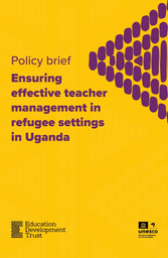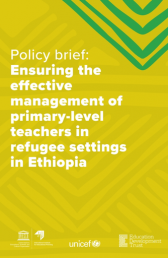
Online version
About the publication
Teachers have been cast as both heroes and villains in HIV education and related contexts, with the latter arguably attracting more publicity. While those who sexually exploit their students are clearly responsible, many teachers are not ultimately to blame for the shortcomings in service delivery. It is clear that they are not being adequately trained, resourced or supported to perform effectively in teaching about HIV and related issues. Too often, HIV education is not included in national education sector plans and policy frameworks. Some donor-driven programmes are seemingly too ambitious or poorly designed for the educational context. The education sector needs to contribute effectively in preparing children to face the various challenges of HIV, including prevention, treatment, stigmatization and impact mitigation, now and in their adult lives. However, a significant shift of attention is required among national policy-makers and international development partners to provide better professional skills for teachers, as well as appropriate resources for teaching and learning and an enabling environment in the school. Drawing on available literature, this book focuses on how teachers have been engaged in the education sector response to HIV and how they have been impacted by AIDS, and includes recommendations about how to enable teachers to become more effective in responding to HIV and AIDS at school.









